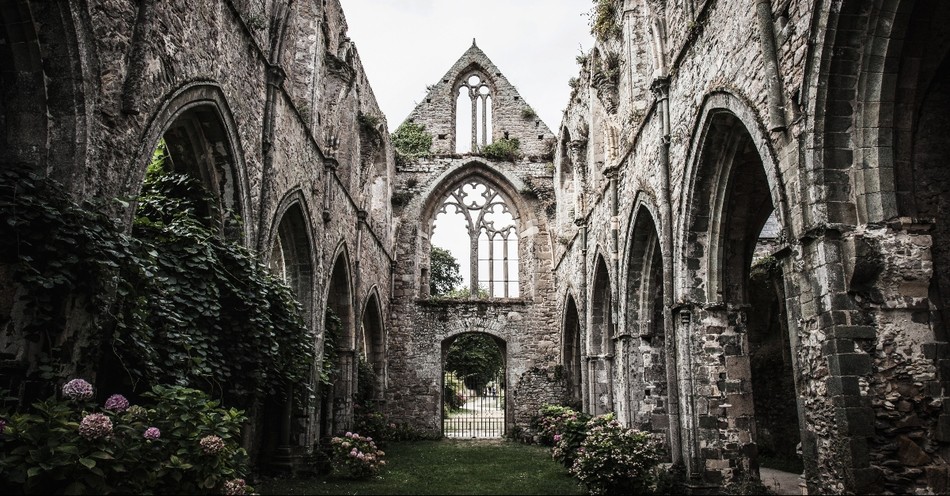The concept of the Church was birthed at Pentecost (Acts 2). Christ-followers, or disciples, were first called Christians at Antioch (Acts 11:26). This is our history, our beginning. As happens with most babies, following their births, the Church grew, and grew, and grew — so much so, the diversity of this family was immense.
The Church Isn’t Perfect
The Church was made up of those who were or who had been: Jews, Gentiles, men, women, children, wealthy, paupers, servants, refugees, thieves, prostitutes, homosexuals, swindlers, liars, adulterers, farmers, prison guards, tax collectors, shepherds, carpenters, fishermen, lawyers, doctors, landowners, blind, deaf, lame, widowed, oppressed, slaves, slave owners, eunuchs, sorcerers, soldiers, centurions, criminals, married, unmarried, barren, infertile, elderly, priests, prophets, prodigals, circumcised, uncircumcised, persecutors, persecuted, educated, uneducated, healthy, sick, etc.
The uniqueness and individuality within the Church can be beautiful, much like a patchwork quilt. That kind of diversity though naturally lends itself to disagreements and disunity. The fact that the Church is made up of people, of sinners, means there are going to be problems — small problems and big problems.
One of the first things you learn when you begin to study church history is that Christianity is one big family tree with many branches. That has discouraged people over the centuries, because many believe that if we have one common denominator, Jesus Christ, then we should be one unified denomination, and clearly, that is not the case. For instance, there are thousands of different Protestant denominations.
We can focus on our disunity, or we can focus on the fact that Christianity, which started with 12 original followers (disciples), is now the largest religion in the world with over two billion followers.
The Bible compares the global family of Christ’s disciples, known as the Church, to the body of Christ, and to Christ Himself as the head of that body.
Christ is the head of the church, his body, of which he is the Savior (Ephesians 5:23).
And he is the head of the body, the church… (Colossians 1:18).
To say that the Church has mostly failed, would be to say that our “head” wasn’t competent, His plan wasn’t effective or adequately executed, that perhaps His vision wasn’t cast clearly.
None of that is true. He chose to use humans, knowing full well our short-comings, failures, and sin. Christ isn’t surprised by what a mess His Church is,
Brothers and sisters, think of what you were when you were called. Not many of you were wise by human standards; not many were influential; not many were of noble birth. But God chose the foolish things of the world to shame the wise; God chose the weak things of the world to shame the strong. God chose the lowly things of this world and the despised things — and the things that are not — to nullify the things that are, so that no one may boast before him. It is because of him that you are in Christ Jesus, who has become for us wisdom from God — that is, our righteousness, holiness, and redemption. Therefore, as it is written: “Let the one who boasts boast in the Lord” (1 Corinthians 1:26-31).
Since the very beginning, when Jesus called His first disciples, He chose people who were ordinary, average, flawed, uneducated, doubtful, and even dishonest. He knows what messes we are. That is precisely why He came to earth — to seek and to save the lost (Luke 19:10).
Yes, sadly, we disagree and fight over seemingly everything from doctrine, to music, to the color the carpet that should be in the church fellowship hall, not to mention:
Modes of baptism, qualifications for church membership, hermeneutics, communion/the Eucharist, worship styles, women pastors, spiritual gifts (tongues and healing), the end times, political views, which books should be in the Bible, how to be the Church during a global pandemic, even the qualifications for being a Christian.
We disagree on so many issues and there is seemingly no end in sight and sometimes the fights even lead to division, splits, and schisms. But we are, after all, family — and unfortunately, families fight. Peter once exhorted us to “… love the family of believers” (1 Peter 2:17). Despite our differences, we need to heed his advice and remember that if we are true believers in Christ, we are brothers and sisters.
So in Christ Jesus you are all children of God through faith, for all of you who were baptized into Christ have clothed yourselves with Christ (Galatians 3:26-27).
Now if we are children, then we are heirs — heirs of God and co-heirs with Christ, if indeed we share in his sufferings in order that we may also share in his glory (Romans 8:17).
The Church Always Perseveres
From early heresies to the Great Schism, the Crusades, the Protestant Reformation and Counter-Reformation, religious wars, colonization, and corruption in the Church — Christianity has had a stormy past; there is no denying that. And yet, Jesus Himself promised, “I will build my church, and the gates of Hades will not overcome it” (Matthew 16:18).
And for over 2,000 years now, He has done exactly that; He has been building His church and nothing has been able to stop it. We can rest assured that nothing will ever stop the Church until Christ Himself returns to claim “the prize for which He died — an inheritance of nations!” (Lyrics from O Church Arise by Keith & Kristyn Getty).
For the Lord himself will come down from heaven, with a loud command, with the voice of the archangel and with the trumpet call of God, and the dead in Christ will rise first. After that, we who are still alive and are left will be caught up together with them in the clouds to meet the Lord in the air. And so we will be with the Lord forever. Therefore encourage one another with these words (1 Thessalonians 4:16-18).
Until then, we have a job to do and we can’t get distracted — not by a global pandemic, not by other Christians, not by disagreements, not by anything.
Jesus has commissioned us to carry on with His task of making disciples. He could have accomplished this task without us — He certainly doesn’t need us — but He chose to use found people to reach lost people.
Then Jesus came to them and said, “All authority in heaven and on earth has been given to me. Therefore go and make disciples of all nations, baptizing them in the name of the Father and of the Son and of the Holy Spirit, and teaching them to obey everything I have commanded you. And surely I am with you always, to the very end of the age” (Matthew 28:18-20).
And this gospel of the kingdom will be preached in the whole world as a testimony to all nations, and then the end will come (Matthew 24:14).
And there it is: God’s plan for the Church. The gospel of the kingdom will be preached to all nations — and then the end will come. And not until.
Learn from history but be the Church!
Photo Credit: ©iStock/Getty Images Plus/Nicolas Garrat
Kristi Walker has been a missionary in Berlin, Germany for over 19 years working with CrossWay International Baptist Church. She is the author of three books: Disappointment: A Subtle Path Away from Christ, Convinced: Applying Biblical Principles to Life’s Choices, and Big Picture: 66 Books, 1 Message.



.jpg)

